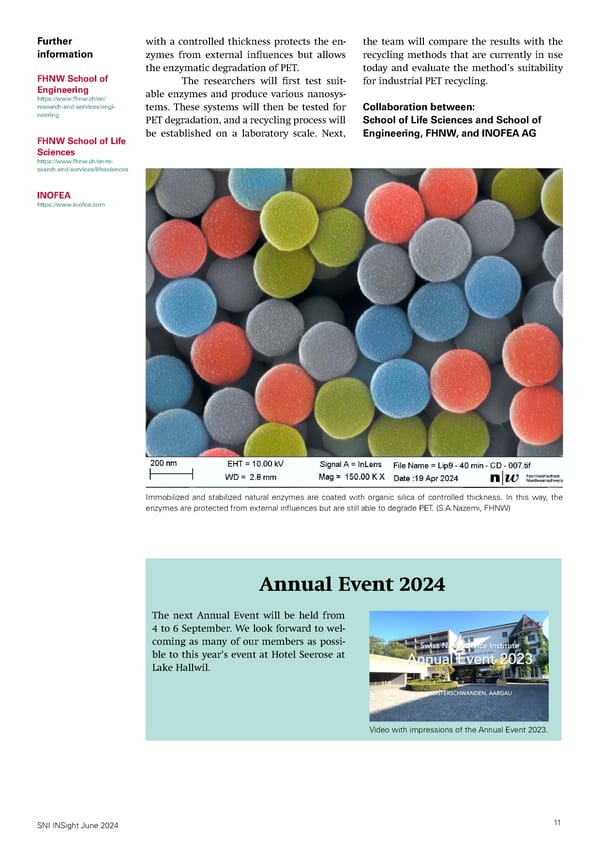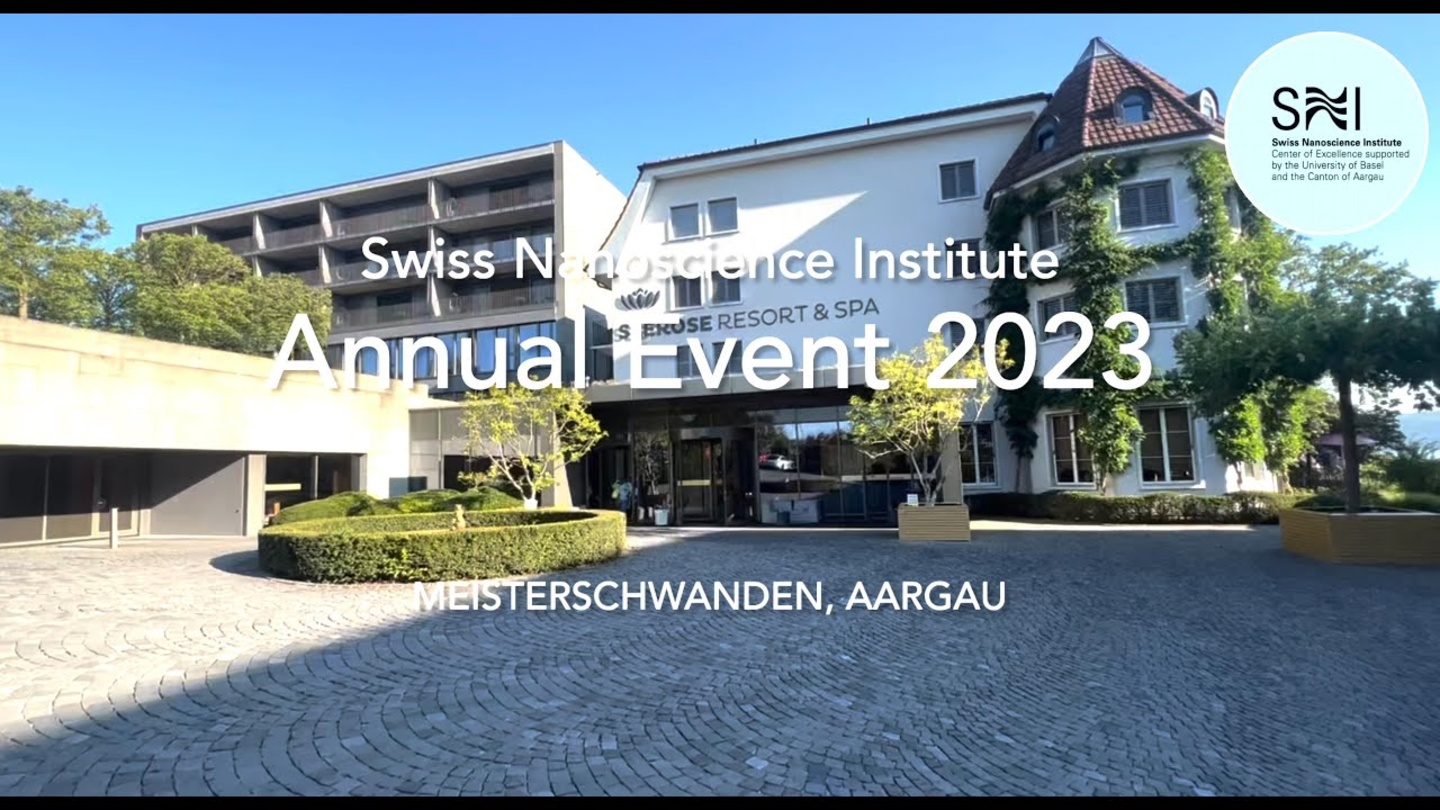Further with a controlled thickness protects the en- the team will compare the results with the information zymes from external in昀氀uences but allows recycling methods that are currently in use the enzymatic degradation of PET. today and evaluate the method’s suitability FHNW School of The researchers will 昀椀rst test suit- for industrial PET recycling. Engineering able enzymes and produce various nanosys- https://www.fhnw.ch/en/ research-and-services/engi- tems. These systems will then be tested for Collaboration between: neering PET degradation, and a recycling process will School of Life Sciences and School of FHNW School of Life be established on a laboratory scale. Next, Engineering, FHNW, and INOFEA AG Sciences https://www.fhnw.ch/en/re- search-and-services/lifesciences INOFEA https://www.inofea.com Immobilized and stabilized natural enzymes are coated with organic silica of controlled thickness. In this way, the enzymes are protected from external in昀氀uences but are still able to degrade PET. (S.A.Nazemi, FHNW) Annual Event 2024 The next Annual Event will be held from 4 to 6 September. We look forward to wel- coming as many of our members as possi- ble to this year’s event at Hotel Seerose at Lake Hallwil. Video with impressions of the Annual Event 2023. SNI INSight June 2024 11
 SNI INSight June 2024 Page 10 Page 12
SNI INSight June 2024 Page 10 Page 12
